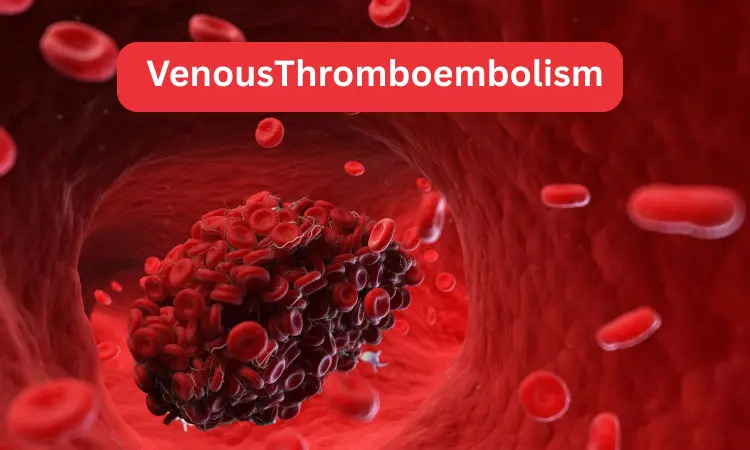- Home
- Medical news & Guidelines
- Anesthesiology
- Cardiology and CTVS
- Critical Care
- Dentistry
- Dermatology
- Diabetes and Endocrinology
- ENT
- Gastroenterology
- Medicine
- Nephrology
- Neurology
- Obstretics-Gynaecology
- Oncology
- Ophthalmology
- Orthopaedics
- Pediatrics-Neonatology
- Psychiatry
- Pulmonology
- Radiology
- Surgery
- Urology
- Laboratory Medicine
- Diet
- Nursing
- Paramedical
- Physiotherapy
- Health news
- Fact Check
- Bone Health Fact Check
- Brain Health Fact Check
- Cancer Related Fact Check
- Child Care Fact Check
- Dental and oral health fact check
- Diabetes and metabolic health fact check
- Diet and Nutrition Fact Check
- Eye and ENT Care Fact Check
- Fitness fact check
- Gut health fact check
- Heart health fact check
- Kidney health fact check
- Medical education fact check
- Men's health fact check
- Respiratory fact check
- Skin and hair care fact check
- Vaccine and Immunization fact check
- Women's health fact check
- AYUSH
- State News
- Andaman and Nicobar Islands
- Andhra Pradesh
- Arunachal Pradesh
- Assam
- Bihar
- Chandigarh
- Chattisgarh
- Dadra and Nagar Haveli
- Daman and Diu
- Delhi
- Goa
- Gujarat
- Haryana
- Himachal Pradesh
- Jammu & Kashmir
- Jharkhand
- Karnataka
- Kerala
- Ladakh
- Lakshadweep
- Madhya Pradesh
- Maharashtra
- Manipur
- Meghalaya
- Mizoram
- Nagaland
- Odisha
- Puducherry
- Punjab
- Rajasthan
- Sikkim
- Tamil Nadu
- Telangana
- Tripura
- Uttar Pradesh
- Uttrakhand
- West Bengal
- Medical Education
- Industry
ASH and ISTH publish revised clinical practice guidelines for pediatric venous thromboembolism

The American Society of Hematology (ASH) and the International Society on Thrombosis and Haemostasis (ISTH) released new and updated clinical practice guidelines for the treatment of pediatric venous thromboembolism (VTE).
The guidelines, published in ASH’s peer-reviewed journal Blood Advances, were developed by an expert panel following a rigorous review process. They aim to improve health outcomes by providing evidence-based recommendations for managing VTE in children.
The new and updated pediatric VTE clinical guidelines incorporate the latest research in the field and mark the first update to the guidelines since their publication in 2018. In total, 16 recommendations were updated and four were added. One of the most notable changes is the new recommendation for direct oral anticoagulants over standard-of-care anticoagulants. Specifically, this recommendation advises clinicians to consider dabigatran or rivaroxaban over therapies such as low molecular weight heparin and vitamin k antagonist.
“These evidence-based guidelines are a key resource for clinicians to improve the quality of care for this vulnerable population,” said Belinda R. Avalos, MD, ASH president. “The recommendations are updated to incorporate the latest science, and we are glad to have collaborated with the ISTH on this project.”
“Collaborating with ASH on these updated pediatric VTE guidelines reflects the ISTH’s commitment to ensuring that children affected by VTE receive the most effective, evidence-based care,” said Pantep Angchaisuksiri, MD, ISTH president. “It’s critical that we continue advancing research and education in this area to support better outcomes for young patients worldwide.”
VTE sometimes manifests as deep vein thrombosis, when a blood clot forms in the deep veins, or pulmonary embolism, when a blood clot blocks an artery in the lung. Although the incidence of VTE in children at a population level is very low, it is higher in children who are hospitalized and can be life-threatening.
“Thrombosis in children is an increasingly common complication in children with complex illnesses and conditions and, if not managed well, can impact long-term outcomes for these patients,” said Paul Monagle, MD, MBBS, MSc, a pediatric hematologist and professor of pediatrics at the University of Melbourne and chair of the ASH ISTH Guidelines on Treatment of Pediatric VTE. “The care of children is important, and parents should know that there is a body of evidence that supports their child’s treatment options.”
Dr Kamal Kant Kohli-MBBS, DTCD- a chest specialist with more than 30 years of practice and a flair for writing clinical articles, Dr Kamal Kant Kohli joined Medical Dialogues as a Chief Editor of Medical News. Besides writing articles, as an editor, he proofreads and verifies all the medical content published on Medical Dialogues including those coming from journals, studies,medical conferences,guidelines etc. Email: drkohli@medicaldialogues.in. Contact no. 011-43720751


